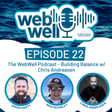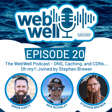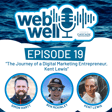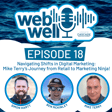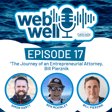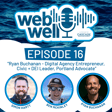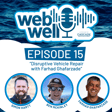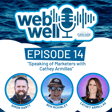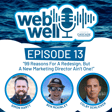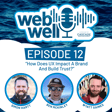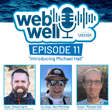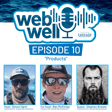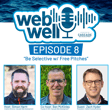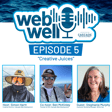
The WebWell Podcast, Episode 3. "Stephen & the Machine Takeover"
In this episode, we welcome Stephen Brewer, the Technical Director at Cascade Web Development, to the show. As colleagues of Stephen at Cascade, Ben and I are excited to have him share his thoughts on artificial intelligence (AI) and its impact on our world.
During our conversation, we delve into the current state of AI, including its applications in various industries and its potential to transform our society. Stephen also shares his insights on the ethical concerns surrounding AI development and usage, and how we can ensure that the technology is developed and used responsibly.
If you're curious about the fascinating world of AI and its potential to shape our future, this is an episode you won't want to miss. (Hint: This was written by AI.)
Thanks for tuning in, and let's get started! Follow us where you listen to podcasts!!
Send us your questions or comments @ webwell@cascadewebdev.com
